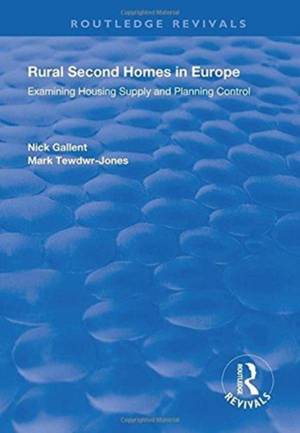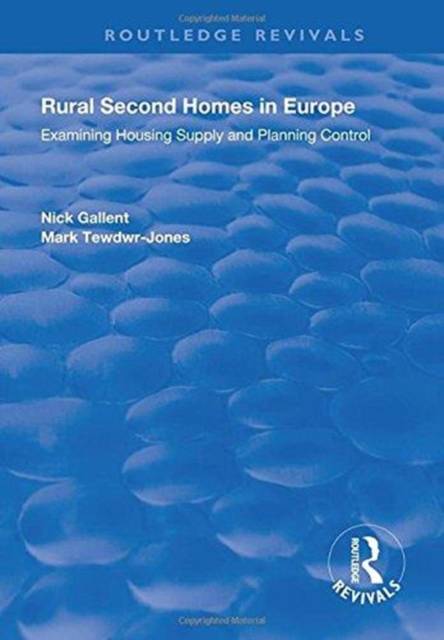
- Afhalen na 1 uur in een winkel met voorraad
- Gratis thuislevering in België vanaf € 30
- Ruim aanbod met 7 miljoen producten
- Afhalen na 1 uur in een winkel met voorraad
- Gratis thuislevering in België vanaf € 30
- Ruim aanbod met 7 miljoen producten
Zoeken
Rural Second Homes in Europe
Examining Housing Supply and Planning Control
Nick Gallent, Mark Tewdwr-Jones
€ 148,95
+ 297 punten
Uitvoering
Omschrijving
This title was first published in 2000: Improved communication links between urban and rural areas and an increase in property prices in urban regions have made commuting an attractive option for European town and city dwellers eager to 'escape' urban living. This has lead to a proliferation of second homes in certain remote or deep rural areas, and this trend is compounding problems that are already affecting the indigenous populations in these areas - such as socio-economic decline, agricultural depression, a lack of services, and unaffordable house prices. Consequently, many politicians in European Member States are calling for the introduction of housing and planning laws to control the proliferation of second home ownership. This book addresses the origins of second home growth, the nature of ownership and demand, the economic costs and benefits and the environmental and social impacts of second homes. It also considers policy and practical responses at European, UK and local levels. The book will be invaluable reading for students and policy analysts in the fields of rural geography, planning, politics, housing studies and cultural studies.
Specificaties
Betrokkenen
- Auteur(s):
- Uitgeverij:
Inhoud
- Aantal bladzijden:
- 176
- Taal:
- Engels
- Reeks:
Eigenschappen
- Productcode (EAN):
- 9781138706156
- Verschijningsdatum:
- 14/12/2017
- Uitvoering:
- Hardcover
- Formaat:
- Genaaid
- Afmetingen:
- 152 mm x 219 mm
- Gewicht:
- 489 g

Alleen bij Standaard Boekhandel
+ 297 punten op je klantenkaart van Standaard Boekhandel
Beoordelingen
We publiceren alleen reviews die voldoen aan de voorwaarden voor reviews. Bekijk onze voorwaarden voor reviews.











